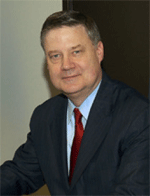
On September 11, 2001, 2,974 individuals were killed by terrorists. Since that horrific day, seven people have been killed in terrorist attacks in the United States. In that same period, 99,000 individuals have been murdered in the United States—not by terrorists but by violent criminals.
Thus far, the U.S. presidential campaign has been dominated by well-founded concerns about the terrorist threat. It is admirable that the presidential candidates are talking about keeping the United States safe from external threats, but there are people being terrorized in their own communities as crime and violence take their toll across the country, and it is imperative that the public hear what solutions each candidate offers to combat this scourge.
The simple truth is that average individuals in the United States are much more likely to find themselves victims of crimes than of a terrorist attack. Need proof? Look no further than the Federal Bureau of Investigation’s Uniform Crime Report. According to these data, in addition to the 99,000 who have been murdered since September 11, more than 8 million have been the victims of such violent crimes as rape, aggravated assault, and robbery.
The news is filled with stories documenting the horror that violent crime is visiting upon community after community and family after family. All too often, the victims of these crimes are innocent individuals who just happened to be in the wrong place at the wrong time.
Unfortunately, the ability of the U.S. law enforcement community to reduce these horrific numbers has been hindered by a combination of factors. Since the September 11 attacks, local law enforcement agencies have necessarily had to do more to protect our communities against terrorism. Yet surprisingly, local law enforcement resources (financial and otherwise) have been decimated; communications interoperability remains a serious problem, with first responders still unable to communicate with each other; and information sharing among law enforcement agencies at all levels remains a challenge.
These increased pressures, coupled with the continuing need to address gun violence, gang activity, and illegal narcotics—as well as a growing demand that local law enforcement agencies handle issues related to illegal immigration have stretched many agencies to the breaking point. As a result, violent crime is now on the rise in many communities, and unfortunately, we can expect it to increase further as the economy declines.
Fighting terrorism and fighting crime go hand in hand, and state, tribal, and local law enforcement agencies are doing both. The same good policing required to fight crime also applies to identifying terrorists: interacting with citizens, investigating reports of strange or suspicious behavior, and catching criminals.
This central truth has been demonstrated on numerous occasions. Incidents such as the preattack traffic stops of September 11 hijackers Muhammad Atta, Ziad Samir Jarrah, and Hani Hanjour demonstrate that local law enforcement officers may encounter suspected terrorists in the course of their routine duties, while the arrests of individuals such as Timothy McVeigh and Eric Rudolph highlight the often critical role that local law enforcement officers play in the apprehension of terrorists.
Clearly, the question of public safety is a critical issue, and the public deserves both to know about the challenges we face in combating crime and terrorism in our communities and to learn how the candidates for the presidency would handle and prioritize these issues. Unfortunately, despite the clear need for action, neither candidate has yet adequately addressed these issues or presented a plan for how he, as president, would seek to reduce crime and violence and its impact on the lives of the citizens we serve.
That is why each of us, as police leaders, need to speak up, make our voices heard, and let the candidates and our communities know about our concerns on protecting the homeland—a phrase that encompasses fighting both crime and terrorism. Police chiefs have no agenda, political or otherwise, beyond our sworn duty to protect the public.
It is my profound belief that the U.S. public deserves to know about the challenges we face in combating crime and terrorism in our own communities and the solutions that each candidate offers. This is an issue that touches the lives of us all—and silence is simply unacceptable. ■


